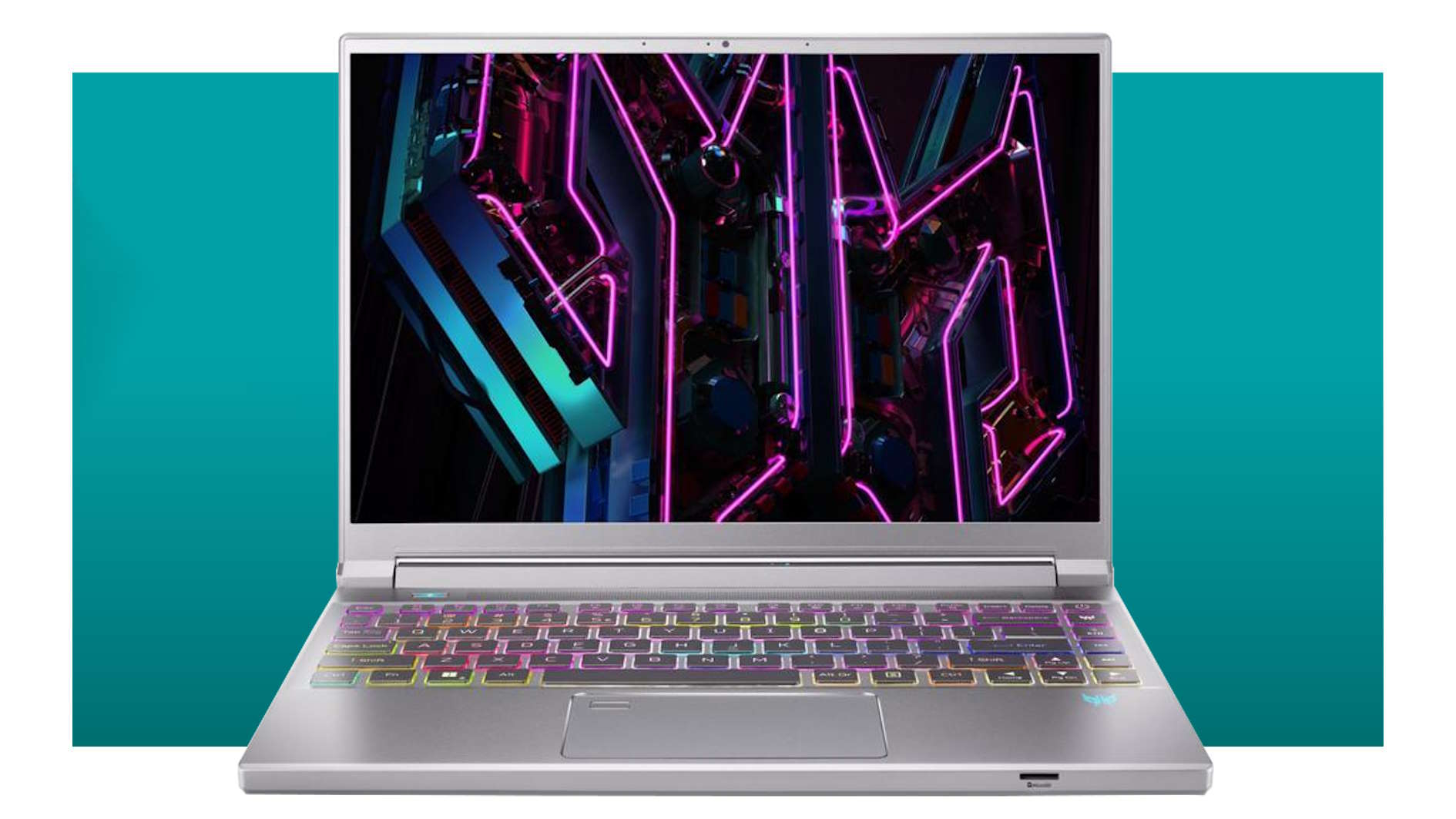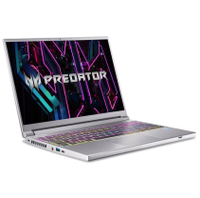I love a little gaming laptop and this powerful 14-incher with an RTX 4070 has never been so cheap
At $1,300 it's the cheapest it's ever been, with $1,500 as low as it's ever gone in the past. There's also no compromise on power in this slimline shell.

Acer Predator 14 | RTX 4070 | Core i7 13700H | 14-inch | 250Hz | 1600p | 16GB DDR5 | 1TB SSD | $1,999.99 $1,299.99 at Amazon (save $700)
It's not the prettiest gaming laptop you'll ever see but underneath the cheap-looking exterior is a pile of really nice hardware. That Intel CPU has 14 cores, 20 threads, and the GPU is a 140W RTX 4070. Backing them up are 16GB of DDR5 RAM and, unusually for this price, a full 1TB NVMe PCIe 4.0 SSD. Even the 2560 x 1600 screen is good, with a 250Hz refresh rate and mini-LED backlighting. There's very little to dislike here and it'll be down to whether the lightweight nature or 14-inch panel just aren't right for you.
Price check: Newegg $1,299.99
There are things you don't expect to find in an affordable gaming laptop; there are after all, compromises you have to make to find a mobile machine that fits into a tight budget. But this Acer Predator Triton 14 with a $700 saving, for $1,300 at Amazon, has literally everything that I would want in a new gaming laptop.
For a start, I love 14-inch machines. They're absolutely my jam. I've got a desktop PC with a decently sized screen if I want to game at scale, so if I'm going mobile then I want a small gaming laptop, and I find the 14-inch form factor the ideal size for me. You get enough space in the chassis to deliver enough cooling to pretty powerful components, and a frame that will house a proper screen, too.
That's important because I'm also a little bit of a screen snob. The latest mini-LED panels I've seen in the latest notebooks have been outstanding and the Triton 14 comes with a 1600p version. Now, with a peak luminance of 600cd/m² it's not going to be on par with the 1,000cd/m² panels we've seen in the latest Predator Helios 16, Lenovo Legion 9i, or Asus ROG Strix Scar 18, but that is still plenty bright enough for a good HDR experience.
I also like a high refresh rate, and the panel is rated at a slick 250Hz, which is going to feel really zippy on the desktop and smooth in games.
There's also no compromise on gaming hardware here, either. There's a full RTX 4070 GPU inside it with a 140W TGP. That's the same level as you'll find in Razer's Blade 14, too, and that delivers a fantastic gaming experience even at the native resolution. Especially once you factor in DLSS and Frame Generation in titles that can capitalise on it.
In terms of CPU, you're getting a 14-core, 20-thread Intel 13th Gen processor. But don't worry that's nominally a generation out of date, because there is practically no difference between the 13th Gen Raptor Lake and the 14th Gen Raptor Lake Refresh architectures. In short, you're still getting a pretty damned powerful processor in your wee machine.
Now, it bears saying that it's not the prettiest notebook out there. It might be a small 14-inch gaming laptop, but its still a bit of a chonky looking boi. It's not necessarily that thick—and it's certainly not heavy, in fact it's a little lighter than the Blade 14—but its angular nature makes it feel a bit more chunky than the svelte Razer machine.
But that minor aesthetic concern is my only worry when it comes to this Triton 14 gaming laptop, especially at this rather exceptional price.
Keep up to date with the most important stories and the best deals, as picked by the PC Gamer team.

Dave has been gaming since the days of Zaxxon and Lady Bug on the Colecovision, and code books for the Commodore Vic 20 (Death Race 2000!). He built his first gaming PC at the tender age of 16, and finally finished bug-fixing the Cyrix-based system around a year later. When he dropped it out of the window. He first started writing for Official PlayStation Magazine and Xbox World many decades ago, then moved onto PC Format full-time, then PC Gamer, TechRadar, and T3 among others. Now he's back, writing about the nightmarish graphics card market, CPUs with more cores than sense, gaming laptops hotter than the sun, and SSDs more capacious than a Cybertruck.


